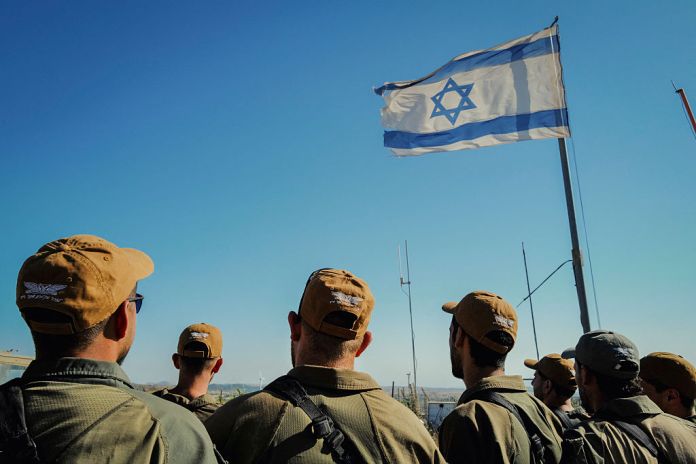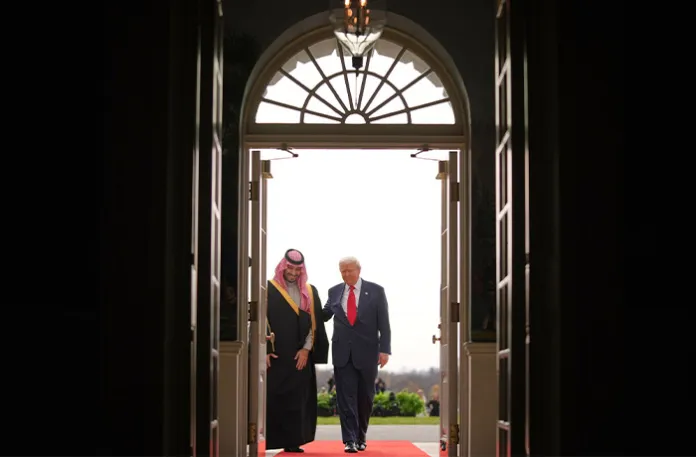Hezbollah-Israel rocket exchange did not affect ceasefire talks: US – Washington Examiner
The article discusses the ongoing conflict between Israel and Hezbollah and how recent exchanges of rocket fire have not hindered ceasefire negotiations involving the United States, Qatar, and Egypt. Despite Israel’s military strikes against Hezbollah in Lebanon, labeled as “preemptive,” and Hezbollah’s response with rocket and drone attacks, U.S. National Security Council spokesman John Kirby stated that these clashes did not impact the ongoing discussions aimed at achieving a ceasefire with Hamas. The negotiations are crucial following Hamas’s significant attack on Israel on October 7, which led to widespread Israeli military action in Gaza.
The article also highlights the complexity of the situation, including the involvement of Iran as a backer of both Hezbollah and Hamas, and the potential for further escalation in the region, especially after the assassination of key figures like Hezbollah commander Fuad Shukr. The U.S. has increased its military presence in light of the threats from Iran and Hezbollah, as talks continue to address the remaining issues surrounding a ceasefire agreement. The humanitarian toll in Gaza has been substantial, with significant civilian casualties reported amidst the fighting.
Hezbollah-Israel rocket exchange did not affect ceasefire talks: US
Israel and Hezbollah’s back-and-forth attacks against one another over the weekend did not fundamentally disrupt the ceasefire negotiations between Israel and Hamas, according to a White House official.
Israel’s military said it struck about 270 targets across Lebanon at Hezbollah targets on Saturday night into Sunday morning in what it described as “preemptive” strikes to prevent an attack. Hezbollah proceeded to fire 230 rockets and 20 drones at Israel, though Israel’s air defenses largely prevented casualties and damage, according to the Israel Defense Forces.
“They did not have an impact on the ceasefire talks, which is a good thing, and we were glad to see that,” National Security Council spokesman John Kirby said on Monday. “The talks are expected to continue over the coming days through working groups to get the details of how to implement the agreement.”
The United States, Qatari, and Egyptian governments have acted as mediators between Israel and Hamas since the beginning of the war last October, and they are desperately hoping to get both sides to agree to the current proposal on the table and get it over the finish line.
The negotiations have continued as both Hezbollah and Iran had vowed to attack Israel in retaliation for the Israeli assassination of Hezbollah commander Fuad Shukr, whom the Israelis said was responsible for an airstrike that resulted in the deaths of about a dozen teenagers in the Golan Heights, and for the assassination of Hamas leader Ismail Haniyeh in Tehran hours later in Iran. Israel has not publicly taken credit for the Haniyeh killing.
Both Israel and Hezbollah have seemingly avoided an escalation in their tit-for-tat fighting after this weekend’s back and forth, however escalation remains a possibility. The two sides have engaged in a limited conflict since October in the aftermath of Hamas’s Oct. 7 attack, but a full-scale war would be significantly more damaging and would result in many more casualties on both sides.
Kirby said it’s unclear whether Iran will attack Israel itself or let the Hezbollah attack stand as their collective response, but he noted, “We have to assume that Iran remains postured and prepared,” and he added, “We’ve got to make sure we’re postured and prepared, and we are. It’s not something we take lightly.”
Iran has supported a number of different military and terrorist organizations in the Middle East for decades to build them up so they can carry out Tehran’s plans while providing Iran with deniability. Hezbollah and Hamas are both among the groups with Iran’s backing.
The U.S. military increased its military presence in early August amid the threat that Iran and Hezbollah could carry out a large-scale attack on Israel and potentially against the U.S. troops already deployed in the region.
Over the last several days, negotiators have met with all sides and continue to work through the details. The Israeli side met with the U.S. and Egyptian delegates last Thursday, while on Friday, the U.S. and Egyptian representatives consulted bilaterally on the remaining gaps, and then on Saturday, Qatari and Egyptian officials met with senior representatives of Hamas, according to an official familiar with the talks. At the end of the talks on Sunday, “all sides agreed on a process to continue over the coming days to work out the details on the last remaining issues,” the official said.
The working group will work for the next couple of days, though it could go “longer or end sooner,” Kirby noted. “I think really it’s going to be up to those in the room and what they’re able to accomplish.”
The war broke out in the aftermath of Hamas’s Oct. 7 terrorist attack in southern Israel, in which thousands of terrorists came through the border and killed roughly 1,200 Israelis and kidnapped about 250 others. About a hundred of them were released during a weeklong ceasefire in late November, but slightly more than a hundred are believed to still be held, though their well-being is unknown. A handful of Americans are still being held by Hamas.
Since then, Israel has decimated Gaza’s infrastructure and Hamas’s ranks, taking out several top leaders. The Palestinian death toll, according to the Hamas-controlled Gaza Health Ministry, is north of 40,000, but that number does not differentiate between civilians and combatants. Israeli officials have said about 17,000 Hamas fighters have been killed and have pointed to Hamas’s strategy of embedding around and underneath civilians as a part of the group’s strategy.
“I don’t know that there’s been a more complex operational environment than Gaza in the history of warfare, especially modern warfare where so much of the fight is subterranean and you’re trying to affect those subterranean networks from the air or from the ground,” Christopher Maier, assistant secretary for special operations and low-intensity conflict, said during a Defense Writers Group event last week.
“It’s particularly challenged, of course, by the fact that Hamas uses that environment to their operational and tactical advantage, and I think it becomes particularly hard to ask the Israelis to use all the discretion in the world,” he added. “That would be ideal. Understanding that they still have a military objective to remove Hamas from a number of the places that they continue to operate.”
The negotiators are currently working off a framework that President Joe Biden publicly described back at the end of May, though the mediators have not been able to get the deal finalized this summer.
Biden’s proposal would include three phases, the first of which would last six weeks and would include the cessation of fighting, the withdrawal of Israeli forces from populated areas in Gaza, a flood of humanitarian aid allowed to enter Gaza and distributed without concern for the war, and several times as many Palestinians freed from Israel’s prisons in exchange for the release of a couple of dozen of the hostages.
The second phase would include the complete withdrawal of Israeli forces from Gaza in exchange for the release of all the other living hostages, while the third phase would include the start of the reconstruction of Gaza and the release of the remains of any hostages who were killed in captivity.
" Conservative News Daily does not always share or support the views and opinions expressed here; they are just those of the writer."




